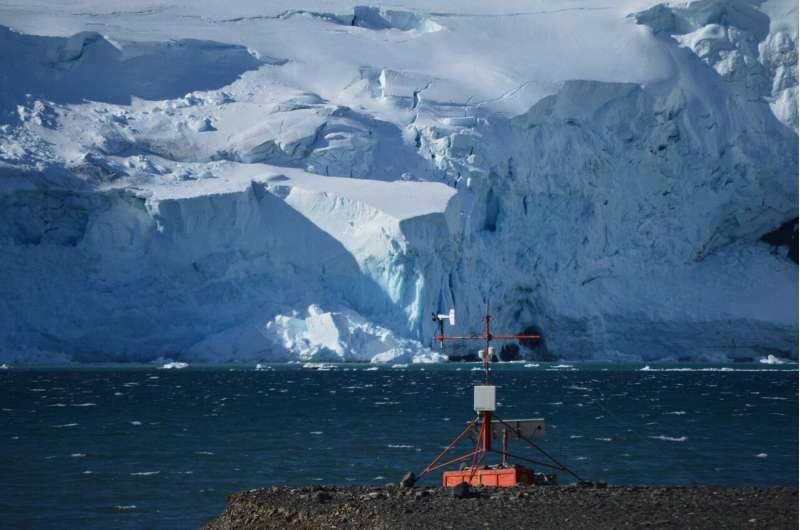This article has been reviewed according to Science X's editorial process and policies. Editors have highlighted the following attributes while ensuring the content's credibility:
fact-checked
trusted source
proofread
Q&A: To save the planet's glaciers, human actions still matter, says scientist

Climate change is melting glaciers around the world. Vanishing ice means less water for the millions of people relying on it and threatens the habitats of species—from bacteria to plants and fish—that live in glacier-fed ecosystems.
Prior to the 28th United Nations Climate Change Conference (COP28) in Dubai Nov. 30–Dec. 12, CU Boulder Today spoke with Twila Moon, deputy lead scientist at the National Snow and Ice Data Center, part of the CU Boulder's Cooperative Institute for Research in Environmental Sciences (CIRES), about the importance of glaciers and opportunities for people to take action.
What's happening with glaciers around the world?
Unfortunately, the current state of glaciers is not looking good. Ice on Earth is really sensitive to small temperature changes. As humans warm the climate, we're losing glacial ice in areas all around the globe. That includes Antarctica, which has an ice sheet that covers the continent, the Greenland ice sheet that covers the world's largest island, and all of the smaller mountain glaciers.
What factors contribute to the melting of glaciers?
We sustain Earth's land ice—glaciers and ice sheets—by snowfall and cold temperatures. As we're raising Earth's temperature, glacier ice melts. In addition, more of our snow is falling as rain, and that is not good for keeping our glaciers and ice sheets around. Glacier ice is formed out of snowfall. Rain, because it's a bit warmer than snow, can actively create further melt on the surface of a glacier.
What are the implications of glacier loss?
Losses of glacier ice around the world have many implications from the local to the global scale.
The most common concern we hear about is rising sea levels. In addition, many local and regional communities depend on glaciers for drinking water, water for agriculture and hydropower.
Cold waters fed by glaciers are also important for keeping our rivers cold and our ecosystems friendly to the plants and animals that live there.
Why should people in regions with no glaciers be concerned about ice loss?
Many of us feel that we live very far from glaciers or ice sheets. But we live in a connected Earth system. That means changes that are happening far away can still influence our local weather, economy and communities.
In Colorado, there are small, glaciated areas in the Rocky Mountains that primarily contribute valuable summer melt to local ecosystems.
We also need to think about how we, as a nation and a part of the international community, are going to respond when people need to relocate from where they live and do business because of glacier loss or associated sea level rise.
A recent study projected that the melting and collapsing of the West Antarctica ice shelf is unavoidable. How concerned should we be?
There are changes happening in Antarctica that we expect to continue and are irreversible. But the pace of those changes still depends in part on human action. Right now, we know that sea levels are going to rise continuously in the future, but the speed at which they rise and how much in total they rise depend on our climate action.
Sometimes people might get the impression that we're already past certain tipping points, for example, thinking there's nothing left to do. This is incorrect. There is much that we can do to influence the future of our planet, ensuring it's livable for us, our children, grandchildren, and the plants and animals we depend on.
What are some of the ways that we as individuals can contribute to protecting glaciers?
The good news is that we know the loss of glacier ice is deeply connected to human-caused warming. We understand the sources of that warming very well, which include burning fossil fuels, changes in land use, methane emissions and food waste. All of us participate in some aspects of these factors, and we can have very direct influence.
I would say one of the most important things is simply talking about this. It can be very difficult to undertake climate action by yourself, which is not going to have the kind of influence that's needed right now. Finding community and talking with others about concerns and shared solutions are really important ways to move forward as we continue with the climate crisis.
The future is not yet written in stone. Each of us has a role to play in taking action, even if you don't have a glacier in your backyard.
Provided by University of Colorado at Boulder





















